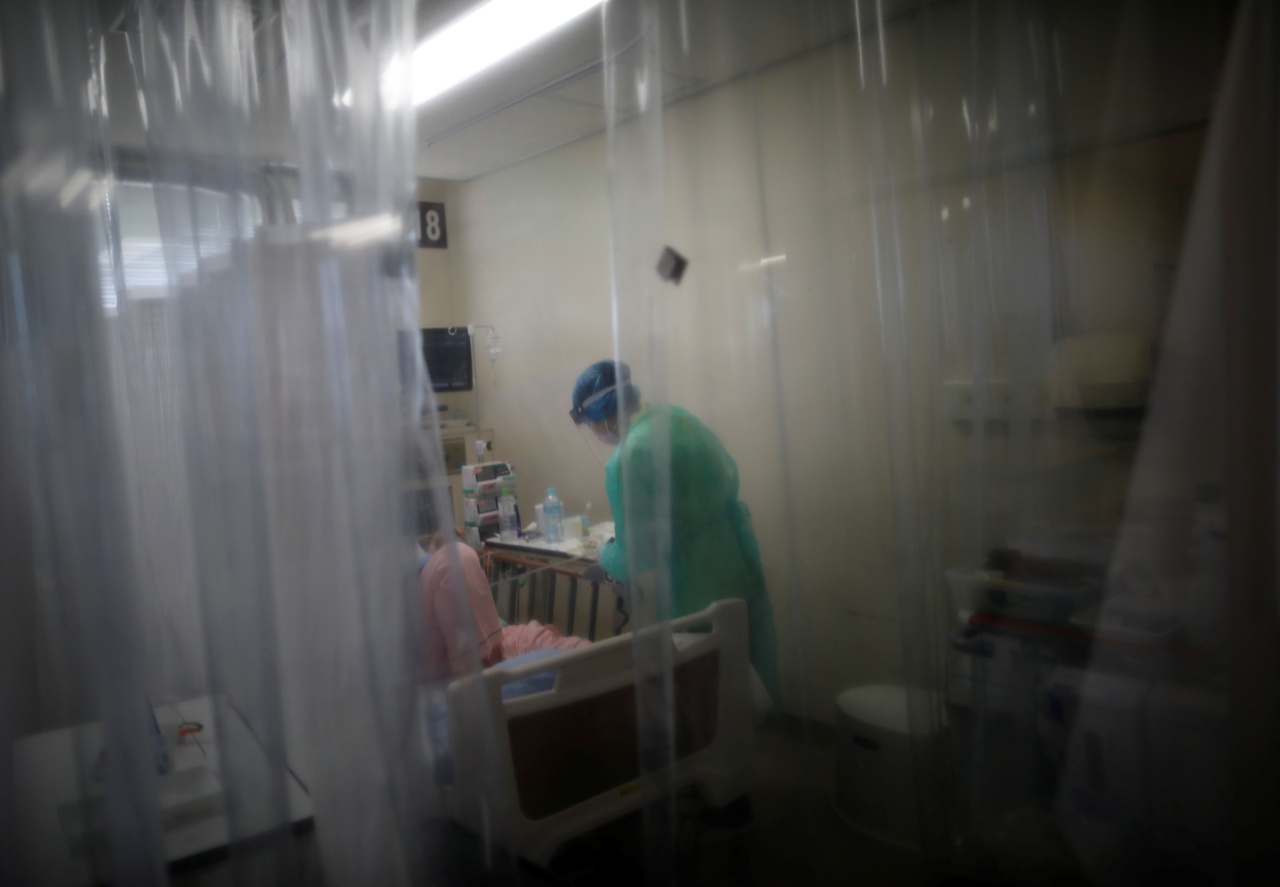Japan debates hospitalising only the sickest Covid-19 patients as cases hit record
Sign up now: Get ST's newsletters delivered to your inbox

Data shows that as many as 84 patients recuperating at home had died suddenly without medical care between January and June.
PHOTO: REUTERS
Follow topic:
TOKYO - Japan shattered its four-day-old Covid-19 record on Wednesday (Aug 4) with more than 14,000 cases, led by new highs in as many as 14 prefectures as the country battles the highly contagious Delta variant.
At the same time, Prime Minister Yoshihide Suga's leadership came under question again over a controversial policy to admit only the sickest and most at-risk patients into hospitals to prevent a breakdown of the medical system.
This has caused plenty of unease among the public and medical professionals, especially when data showed that as many as 84 Covid-19 patients recuperating at home had died suddenly without medical care between January and June.
While Health Minister Norihisa Tamura defended the policy, he signalled a chance that it could be rolled back amid stiff opposition.
Dr Shigeru Omi, a former World Health Organisation official who now heads the government's Covid-19 advisory panel, dropped a bombshell when he said that experts were not consulted before Mr Suga's announcement on Monday.
He told the Diet that comprehensive measures, including community-based care, must also be considered, rather than the black-and-white dichotomy between home and hospital.
The ruling Liberal Democratic Party (LDP) has asked the government to retract the policy, Japanese media reported. Elsewhere, LDP coalition partner Komeito slammed the policy as "inconceivable", while the main opposition Constitutional Democratic Party of Japan called it a "man-made disaster".
This debate is gaining momentum as Japan set an all-time high of 14,207 new cases on Wednesday. The Fire and Disaster Management Agency said that more than 2,000 ambulances with emergency patients had to wait for more than 30 minutes for a hospital to accept them in the week ending Sunday.
Wednesday's national record was driven by Tokyo's 4,166 cases - a new high - while three prefectures clocked more than 1,000 infections: Kanagawa (1,484 cases), Osaka (1,224 cases) and Saitama (1,200 cases).
Underscoring the threat of the Covid-19 surge - driven by the highly contagious Delta variant that is now the mainstream strain - is how it has not been restricted to heavily populated metropolitan areas. Fourteen of Japan's 47 prefectures reset their single-day Covid-19 tallies on Wednesday.
They are: Tokyo, Saitama, Chiba (840 cases), Fukuoka (752), Okinawa (602), Ibaraki (290), Kyoto (277), Gunma (204), Shizuoka (202), Tochigi (178), Shiga (103), Niigata (78), Mie (74) and Yamanashi (49).
However, the government has failed to win over a public grown weary of state of emergency curbs.
Medical experts, including Dr Omi, have said that the ongoing Olympics have blunted the sense of urgency and sent mixed signals. While the government is asking the public to avoid "non-essential" outings on the one hand, it has not called off Olympic events such as the public display of the cauldron.
This is seen as tacit approval among the Japanese to justify gathering around these sites for an "essential" possibly once-in-a-lifetime photograph opportunity.
Likewise, the sense of urgency has been hampered by the government's inability to enact strong lockdown measures due to constitutional guarantees on freedoms. Neither is the government keen to impose stronger requests on the retail, transport and tourism industries - above the measures targeted at the food and beverage industry - as this would hurt consumption and the economy.
But this has, on the flip side, given cause to the public to go out shopping, and travel across the country - while taking basic Covid-19 measures, including wearing masks and sanitising hands - especially amid the summer holidays and as limited emergency measures lose their impact.
Dr Omi said on Wednesday that the government must consider a national state of emergency, given that "clusters are occurring in workplaces, schools, shopping centres and a wide range of places beyond the government's focus on restaurants".
Still, Mr Suga has put on a brave face, telling reporters: "We are being vigilant in our response and we will continue to firmly take thorough measures to protect the lives and health of the people."
He said that the hospitalisation policy measures being considered to admit only the sickest is limited to Tokyo and other areas that are "seeing an explosive surge in infections that is not uniform throughout the country".
Meanwhile, Mr Suga highlighted how the country has reached his stated goal of vaccinating all senior citizens aged 65 and above who wished to be inoculated by end-July, adding that the next step would be to encourage youth to get vaccinated.
Official data as at Wednesday shows that 78.3 per cent of the elderly have been fully vaccinated, with another 8.6 per cent having had their first dose in the two-dose regime.
Among the general population, 40 million people or 31.5 per cent have been fully vaccinated, with another 13.2 per cent having had their first jab.
Amid a critical shortage of Pfizer and Moderna vaccines, the government is planning to allow the use of AstraZeneca vaccines in emergency areas, and only for those aged 40 and above.

